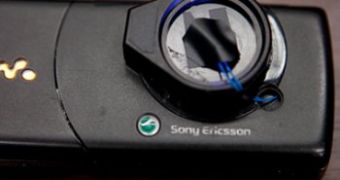This may not be the first time such a piece of news reaches us, but it is the first time it can be regarded as more than wishful thinking. Creating such a blood analyzing cell phone seems to be possible in the very near future since scientists at UCLA have already come up with the necessary solution.
The development of such a device could represent another revolutionary breakthrough. Moreover, if the handset in question works as claimed, it will surely open the door for a path to be followed in the future. The truly remarkable advantage such a mobile could offer is the fact that people will no longer need fancy, expensive equipment to perform these tasks – every remote, poor village could purchase one.
The main idea behind this discovery is that, by using only a LED, plastic light filters and circuits, the scientists found a way of turning a normal mobile into one that could detect illnesses such as HIV, malaria and many more.
Dissecting the idea more thoroughly, thanks to the software developed by Dr. Aydogan Ozcan, the mobile remembers various “qualities” of the blood and also properties of certain illnesses. Next, after the blood cells are placed on the camera sensor, which are then lighted up with a filtered light source, the mobile is able to identify the preprogrammed properties, thus telling users whether they have been infected with a certain virus or not.
Also, the scientists claim that, by using this innovation, the results will be extremely accurate, the changes of wrong diagnostics given by the mobile being very slim. Moreover, the results will be analyzed and transmitted to the users in a matter of minutes, thus saving them trips to clinics and hospitals as well as weeks of waiting.
For now, besides this piece of news, unveiling the actual discovery, no relevant information is available but, as mentioned earlier, should such a mobile turn out to be an accurate diagnosis transmitter, the device is almost certain to go into mass production, for it would come as most useful particularly for third world countries.

 14 DAY TRIAL //
14 DAY TRIAL //